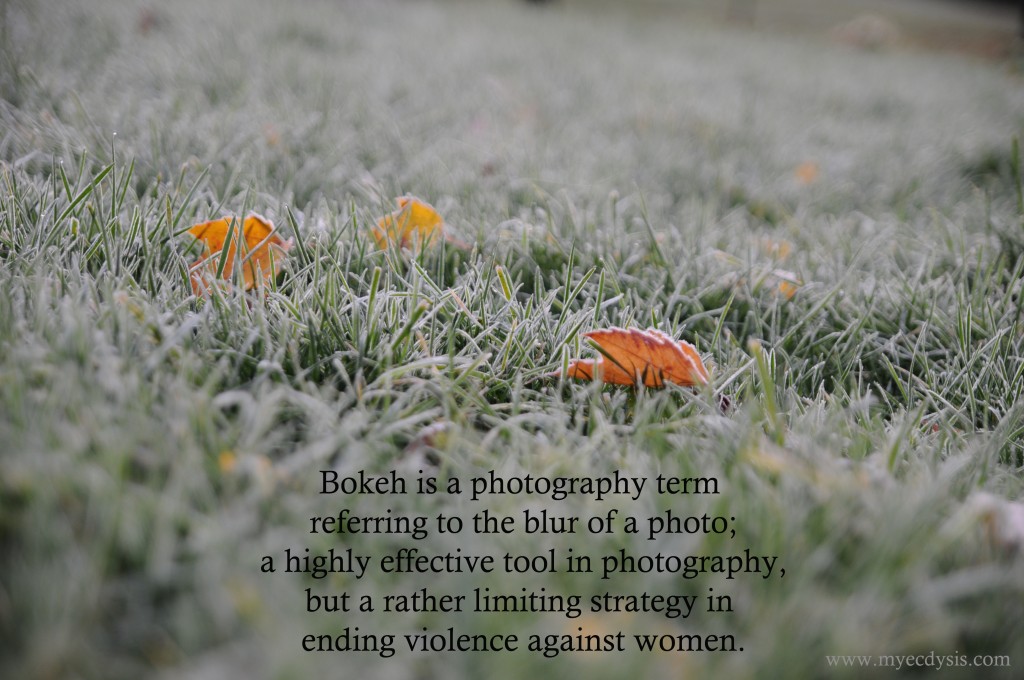 For the last twelve years, I walked around with an idea about helping survivors of rape and sexual violence. For the past three years, I’ve been working intently on finishing and publishing a collection of letters, essays, and prose written by survivors for other survivors exploring issues of justice and healing. Each time I’ve arrived at my screen to work on it, it’s been an uphill battle. Though I am comforted by the contract that it will be published, I still sit with the same heavy question as I did twelve years ago: What will it take to end rape and violence against women?
For the last twelve years, I walked around with an idea about helping survivors of rape and sexual violence. For the past three years, I’ve been working intently on finishing and publishing a collection of letters, essays, and prose written by survivors for other survivors exploring issues of justice and healing. Each time I’ve arrived at my screen to work on it, it’s been an uphill battle. Though I am comforted by the contract that it will be published, I still sit with the same heavy question as I did twelve years ago: What will it take to end rape and violence against women?
In my experience working with survivors in the context of mental health, advocacy, and now publishing, I’ve articulated some cornerstones/reminders/mental sticky notes that keep me grounded in this labor.
1. Power exists. Most folks know this, but don’t KNOW THIS. The majority of folks still need mentorship and education on its dynamics; what it is, how to use it, and its impact in daily action and relationship.
2. Gender…Essentialism. Stereotype. Discrimination. Whatever label is assigned. Gender_____ must be addressed. Ongoing. Never ending. There’s nothing more loaded or consuming than a dialogue unfolding the layers of the invisible gender laws of US society.
3. Discerning leadership. Every campaign, movement, or rally must acutely examine its use and spaces of power, privilege, and cultural differences.
4. A global dance, not choreographed. Each community must take the primary role and responsibility of creating and implementing its own actions toward ending violence against women. (Yes, United States of America, this means you. Stop trying to diva your way into lands and peoples trying to save them. They’re quite capable of their own liberation.)
And finally…
5. Be mindful of the bokeh effect. Bokeh is a photography term. It’s the blur of a camera lens, throwing something in the background out of focus for an aesthetic quality. I fear this is the case for many movements to end violence against women. It throws so many out of focus. The reality is that men are not an accessory to ending rape, they are the primary target and tool to the fruition of this reality. We need everyone. Men. Children. Gender non conforming people. Transwomen. Transmen. Houseless folks. Mentally ill folks. Physically disabled folks. Todos/ALL. Everyone must be included in building a transformed world. Women cannot be the disproportionate population surviving rape and then be the ones who take majority over the work in ending it. How does that make any sense? The work must be shouldered and inclusive.
As Vday 2013 comes to its final hours in the United States, I sit watching the sky darken and wonder…
What happens on February 15, 2013? What happens when the 1 Billion Rising are risen? What happens when the music stops, everyone gathers their things, and heads home? Before I throw support behind a cause, I ask a question: Does this effort dismantle rape culture action or transform it? If it dismantled, it’s focused on awareness. (Keeps the issue bobbing like a buoy. It’s important and sustains it on media’s radar.) If it transforms, it digs deep, trying to get rid of the bokeh. (Works at a deeper level of change, goes to the root of the issue utilizing timeless questions about sustainability, liberation, and vision.)
I’d never say 1 Billion Rising is a bad thing. It’s a great thing. But the music will stop (if it hasn’t already). And the wonderful movement that uplifted the Rising will carry them home while those who did not dance may or may not catch a faceful of the stirring breeze the Rising created. That’s it. From what I gather, there is no clear follow-up for organization or education.
I ask my question: Did it dismantle or transform rape culture? I think it’s clear that 1 Billion Rising is about dismantling, not transforming rape culture. That’s not a bad thing! Every project fills some kind of void gathering forces to make a statement has a role in ending rape. I’d never discourage anyone from participating in action that brings energy and inspiration, but it’s also helpful to keep in mind how many more consciousness-raising campaigns we promote in the name of ending violence against women when we know full well that as long as we keep using bokeh – keeping one billion in focus and blurring the other six billion – we are not advancing forward. We are not ending violence against women, we’re just delaying it by a day.
I want more than One Billion Rising. I want Seven Billion Transforming.